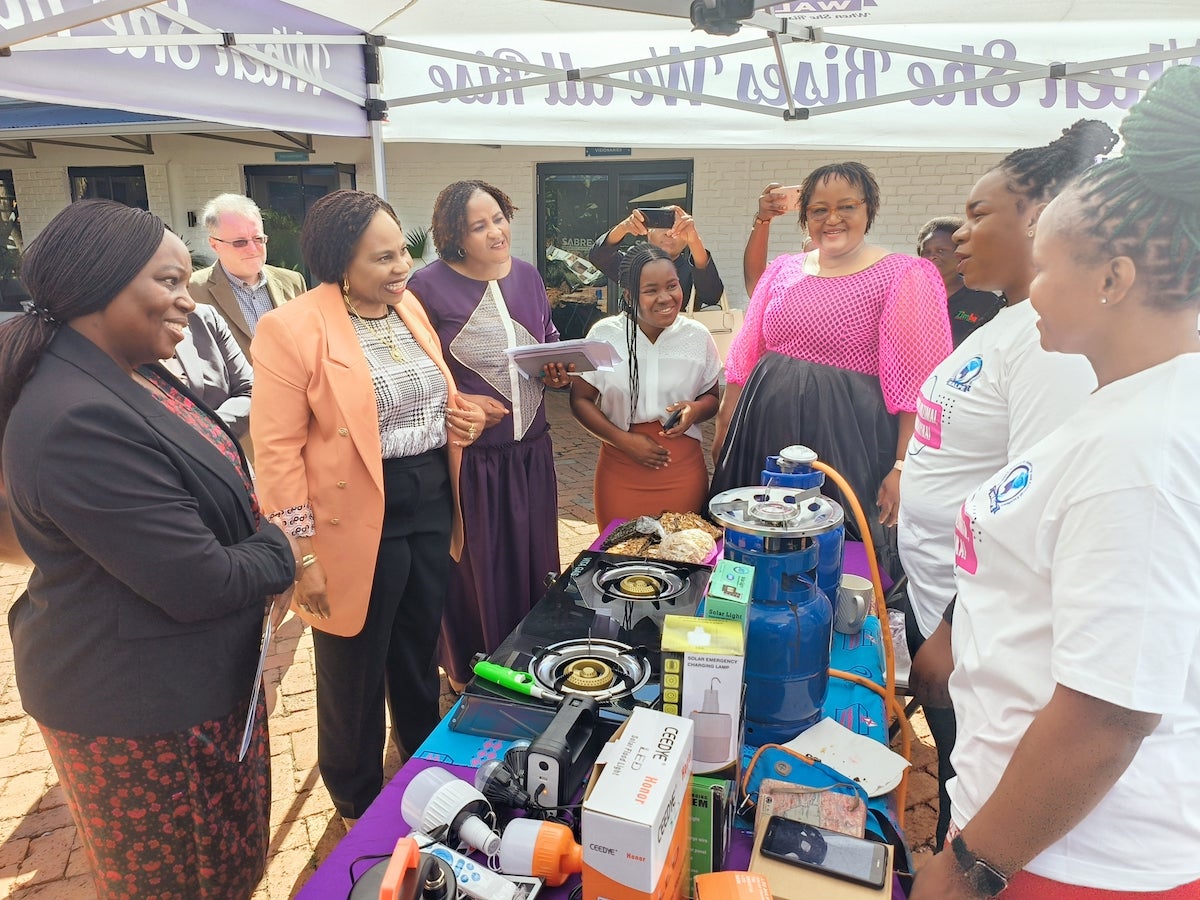National Gender and Climate Change Task Force launched
Date:

Minister of Women Affairs, Community, Small and Medium Enterprises Development in Zimbabwe Hon Monica Mutsvangwa launched the National Gender and Climate Change Task Force in Harare. This initiative was announced during the inaugural gender and climate change symposium facilitated by the Ministry of Women Affairs with support of UN Women.
The task force aims to empower women across the country to play a key role in national decision-making processes related to climate change and food security. Government of Zimbabwe is working on strengthening the participation and leadership of women in decision-making processes related to climate action, through the introduction of various programmes.
At the launch, Minister Mutsvangwa said “climate change affects different genders unequally and extends beyond environmental concerns to encompass social justice and human rights. Women and girls, who face unique challenges such as increased workload, limited access to resources, and heightened risks to their health and safety, are often the worst affected by climate change”.
UN Women Deputy Country representative Ms Loveness Makonese in her solidarity remarks acknowledged the strides Zimbabwe has made in promoting gender equality and highlighted the present threats that climate change poses disproportionately affecting women and girls. “As we gather here today, let us remember that gender equality and climate justice are not separate issues, but interconnected pieces of the same puzzle. We cannot hope to achieve one without addressing the other” she said.
Draught exacerbates existing gender inequalities, placing women and girls at a heightened risk of gender-based violence and early child marriages. At the Symposium Stakeholders committed to addressing these challenges by integrating gender equality into community initiatives, empowering women to adapt to changing weather patterns. This includes providing training in drought-resistant farming techniques, access to financial resources, and ensuring their voices are heard in decision-making processes.
The task force is set to implementing programmes focused on enhancing women’s access to climate finance, technology, and capacity-building opportunities, collaborating with international partners to share knowledge, resources, and expertise.
This initiative is a significant step towards addressing the challenges faced by women due to climate change and empowering them to take an active role in climate action1. It’s a great example of how integrating gender perspectives into climate action can lead to more effective and equitable solutions.